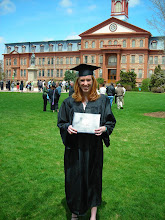After looking back to what I have learned from my undergrad courses as well as watching other teachers in elementary classrooms, I have picked up a philosophy of my own when teaching literacy in the future.
1. When constructing a literacy program we need to keep in mind the students' interests, cultures, and abilities.
In a kindergarten guided reading period that I have observed the teacher picked out books that matched their level of reading as well as what she thought the students liked. One thing that I did notice was that most of these leveled books did not represent the students' cultures. They may not notice this now but they will later. All differences need to be represented.
2. Different and effective strategies need to be used in order to benefit every student.
The best ideas that I have seen so far came from the authors, Fountas and Gay Su Pinnell. During the reading/writing block period, students are put into literacy centers. The centers included word sorts, journal writing, audio tapes, book clubs, poetry, dramatic plays, and guided reading. The list can go on and on. Guided reading is a favorite of mine because students can discuss their own strategies about decoding or understanding the text. Students not only develop more writing and reading skills, they develop more listening and speaking skills. During this time students have the opportuntiy to cooperate with others as well doing independent work. These strategies can benefit ESL, students with special needs, and different learning styles.
3. Literacy needs to be incorporated into every subject.
During my children's lit class, we did a mock unit of WWII. We did a book club of Number the Stars, reenacted scenes from the book, did some research about the time period, had debates, and kept a journal about what it would be like to live in a war-torn country. Our understanding was much greater as we incorporated reading, writing, speaking, and listening into a scial studies topic.
From being an elementary student myself to being in the elementary classrooms of today, I have noticed that we have come a long way. We have found out ways to better the students' fluency, comprehension, phonemic awareness, phonics, and vocabulary. It's all about us teachers to follow through.
Monday, August 24, 2009
Subscribe to:
Post Comments (Atom)

No comments:
Post a Comment